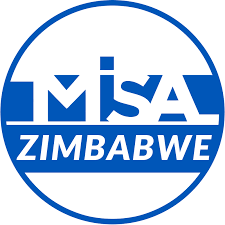Media Institute of Southern Africa (MISA) has called for the implementation of media laws that will promote the safety of journalists and create an enabling environment for them as they execute their duties.
MISA Regional Director, Dr Tabani Moyo, made these remarks while virtually participating in the United Nations global commemorations of the International Day to End Impunity for Crimes Against Journalists.
The commemorations are held annually on November 2 and this year they ran under the theme: “Violence against journalists, the integrity of elections and the role of public leadership.”
Dr Moyo bemoaned that the civic space is generally shrinking in Southern Africa, with attacks on journalists and civil society becoming less overt and more subtle. He said in Zimbabwe, MISA has made efforts to put in place institutional safety mechanisms for the safety of journalists through devising the Police-Media Action Plan, and as a result, not many reports of violation were recorded in 2023 despite it being an election year.
“While traditionally, we campaigned for media law reform, there is a need for a more nuanced approach in terms of the reforms we need and how these address emerging issues. There is a need to put in place institutional safety mechanisms for the safety of journalists in each country,” Dr Moyo said.
“For example, in Zimbabwe, albeit informally, we devised the Police-Media Action Plan. It came after the realization that the police, were by far the most responsible institution for attacks on journalists. Police and the media across the country engaged on how the safety of journalists could be improved, which helped ease mistrust between journalists and the police.”
Dr Moyo further highlighted the need to domesticate the ACHPR Resolution 522 on the Protection of Women Against Digital Violence in Africa, citing that it is important where it concerns the resolutions to undertake measures to safeguard women journalists from digital violence, including gender-sensitive media literacy and digital security training.
The Zimbabwe Lawyers for Human Rights (ZLHR) also voiced their solidarity, imploring the need for the government to combat the pervasive culture of impunity for crimes against media practitioners. ZLHR noted that journalists play a critical role in reporting facts for consumption by the generality of the society and impunity for attacks and crimes against media practitioners has a damaging impact on the work of journalists as this limits dissemination of critical information, public awareness, and constructive debate.
“These commemorations are meant to sensitise and promote constructive dialogue on the level of impunity for crimes against journalists, which remains extremely high across the world with journalists being killed in the line of duty in Palestine, Israel, and also on the Israel-Lebanon border. According to the Committee to Protect Journalists, at least 31 journalists and media workers were killed as of 31 October 2023, since the war began early in October, with several reports of journalists being injured, detained, or reported missing,” they said.
“In Zimbabwe, ZLHR is profoundly worried that perpetrators of crimes against journalists continue to act with impunity with no consequences for their misdemeanours. Journalists are often arrested and assaulted in the course of their duty and in some cases, they are forced to delete pictures or videos taken during incidents or events, and crimes against journalists increase during electoral periods.”

